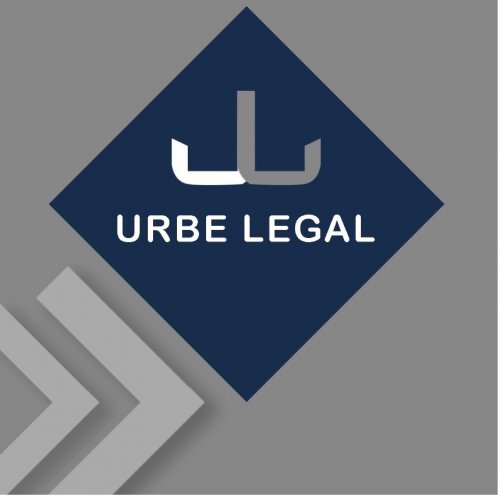Best Will & Testament Lawyers in Coban
Share your needs with us, get contacted by law firms.
Free. Takes 2 min.
List of the best lawyers in Coban, Guatemala
About Will & Testament Law in Coban, Guatemala
In Coban, Guatemala, the laws surrounding Wills and Testaments are largely guided by the country's Civil Code. This code allows any adult who is of sound mind to designate how their property and assets should be disposed of upon their death. This legal instrument, typically known as a Will or Testament, should be drafted in the presence of a notary for formalization. In the Will, you may set forth instructions for guardianship of minor children, division, and distribution of assets, and even express wishes about personal matters such as funeral arrangements.
Why You May Need a Lawyer
Appointing a lawyer when drafting your Will or Testament is crucial, as they can ensure your Will is legally valid, your instructions are clear, and your interests are adequately protected. This is particularly important in complex situations such as sizable estate, multiple beneficiaries, overseas properties, or when you wish to disinherit a family member. A lawyer can also guide you through any potential tax implications and help avoid future disputes among your heirs.
Local Laws Overview
In Guatemala, it is key to understand that any properties held within a marital community (known as Sociedad Conyugal) are not disposable through a Will, the laws of intestate succession apply. If you want to leave specific instructions about these properties, make sure to consult with a lawyer. Also, according to Guatemalan law, forced heirs (descendants, ascendants, and surviving spouse) are entitled to a certain minimum portion of your estate, known as the 'legitimate'. Lastly, you should be aware that Guatemala does not recognize handwritten (holographic) or oral Wills - only notarized Wills are valid here.
Frequently Asked Questions
1. Can I designate any person as a beneficiary in my Will?
Yes, you can designate anyone, including non-relatives, as beneficiaries. However, bear in mind that your descendants, ascendants, and surviving spouse have a right to a minimum portion of your estate.
2. What happens if I die without a Will?
If you die intestate (without a Will), the Guatemalan laws of intestate succession apply. These laws lay down rules for division of property among your heirs, which may not coincide with your intentions.
3. Can my Will be challenged?
Yes, Wills can be challenged on several grounds such as lack of capacity, undue influence, improper execution, and fraud. Having a lawyer navigate these legal complexities can significantly reduce the risk of challenges.
4. Can I change my Will once it's done?
Yes, you can change your Will anytime by making a new one or incorporating amendments, known as codicils. All changes must be notarized to be valid.
5. How can I ensure my overseas properties are included in the Will?
This can be complex, and dependent on the laws of the countries where the property is held. A Guatemalan Will should be valid to cover your local and international assets. However, local enforcement in the countries where the properties are located might require additional legal steps. Consultation with an international law expert is advisable.
Additional Resources
For more information regarding Wills and Testaments, you can approach the Notary and Registry Authority (Dirección del Registro de la Propiedad Intelectual) and Ministry of Interior (Ministerio de Gobernación). Various non-profit organizations provide legal aid and guidance in Guatemala, such as Bufete Jurídico Popular and Instituto de Estudios Comparados en Ciencias Penales de Guatemala.
Next Steps
If you need legal assistance in drafting your Will or Testament, find a reputable lawyer specializing in this field. Be sure to prepare a list of all your assets, properties, and your intended beneficiaries when meeting your lawyer. It's also beneficial to discuss your concerns and objectives, ensuring all decisions made align with your wishes.
.Lawzana helps you find the best lawyers and law firms in Coban through a curated and pre-screened list of qualified legal professionals. Our platform offers rankings and detailed profiles of attorneys and law firms, allowing you to compare based on practice areas, including Will & Testament, experience, and client feedback.
Each profile includes a description of the firm's areas of practice, client reviews, team members and partners, year of establishment, spoken languages, office locations, contact information, social media presence, and any published articles or resources. Most firms on our platform speak English and are experienced in both local and international legal matters.
Get a quote from top-rated law firms in Coban, Guatemala — quickly, securely, and without unnecessary hassle.
Disclaimer:
The information provided on this page is for general informational purposes only and does not constitute legal advice. While we strive to ensure the accuracy and relevance of the content, legal information may change over time, and interpretations of the law can vary. You should always consult with a qualified legal professional for advice specific to your situation.
We disclaim all liability for actions taken or not taken based on the content of this page. If you believe any information is incorrect or outdated, please contact us, and we will review and update it where appropriate.








